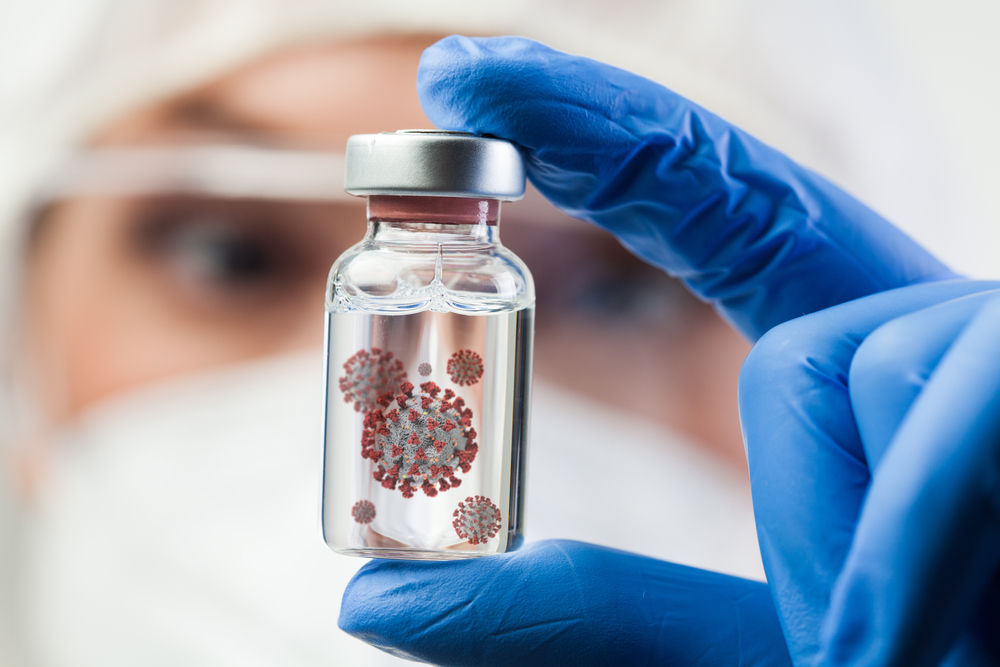
Overview
Adenoviruses are viruses that cause disease of the respiratory system, acute follicular conjunctivitis, keratoconjunctivitis, cystitis, gastroenteritis, and in children, pharyngitis and pharyngeal-conjunctival fever are common. Adenoviruses occasionally attack the mucosal membrane that lines the openings in our body.
Adenoviruses infect the linings of the eyes, airways (and eventually the lungs), and urinary tract. It also infects the lining of the intestines and the nervous system. Infecting these linings lead to flu-like symptoms such as cough, fever, and sore throat, as also conjunctivitis, commonly called pink eye, and diarrhea.
Adenoviruses are self-delimiting in that after a few days of infection, they go on their own, or simply curing the symptoms the patient develops will do for their treatment. But that is not the case for patients who have weak immune systems, such as patients who did stem cell transplants (or organ transplants), are infected with HIV/AIDS, or are under treatment for Systemic Lupus Erythematosus (SLE).
Adenovirus infection is contagious and can be transmitted by various mediums hence the cause of its fast spread. It can spread through the air via air droplets when the patient coughs and another inhale, contact on solid surfaces when we touch surfaces infected with the virus or when children take solid objects infected with the virus to their mouth, and through the water when we drink or swim in the streams, lakes or rivers contaminated with the stool of an infected person.
Types of Adenovirus
Adenoviruses are classified according to their antigenic properties. This means that their types depend on the type of protein called antigen they produce. This antigen locates another protein called an antibody in the body of the host to form a bond called antigen-antibody reaction; it is through this bond formation that gives the adenovirus viral particle is a medium to enter into the host tissue. Therefore, if the host does not produce this likened antibody that can form a bond with the virus’s antigen, the virus can not infect the host.
On this note, more than 100 antigenic types of adenoviruses have been discovered and identified that can infect mammals and birds; these are called mastadenoviruses and aviadenoviruses, respectively. Also, 47 adenoviruses have been classified to affect humans.
Key Facts
The essential things to have at the back of your mind about adenoviruses include:
- Adenovirus, as the name implies, is a virus that can cause flu-like symptoms that affect the lungs extending to the nervous systems and intestines.
- It can go on its own after a few days of infection or by treating symptoms the patient develops.
- For immunocompromised individuals, extra precaution or treatment needs to be applied as adenovirus infection can be worse in their case since their immune system is weak.
- Adenovirus is contagious and has various transmitted means or routes. This includes the air, water, and solid surfaces.
- It can simply be prevented if we take care of ourselves and our young ones and keep to personal hygiene at every instance.
Symptoms
Depending on the antigenic type of adenovirus, patients may experience different symptoms since different adenoviruses have additional tissue specificity on their host. Some of the symptoms include:
- Conjunctivitis: This is an adenovirus infection of the eye; the patient experiences redness of the eye, tears, and eye discharge.
- Bronchitis and Pneumonia: Adenovirus attacks the respiratory system causing the patient to have difficulty breathing, fever, cough, and running nose.
- Intestinal infection: Patients experience vomiting and diarrhea due to irritation, fever, headache, and stomach aches.
- Urinary Tract Infection (UTI): The patient may have hematuria, that is, the presence of blood in urine and painful urination.
Diagnosis
Adenovirus is diagnosed with the doctor asking a series of questions followed by requesting some tests to confirm the presence of the virus. The doctor will ask questions relating to the symptoms the patient is experiencing, followed by a physical examination, such as checking for fever or chills, eye discharge, or redness of the eyes. Then the doctor will require tests such as:
- Blood Test: The patient’s blood will be collected through the vein for testing. Then the presence of the virus can be checked using Enzyme-Linked Immunosorbent Assay (ELISA) or any other blood testing procedure.
- Chest X-ray: The doctor will request an X-ray to examine the patient’s lungs and heart condition closely.
- Urine Test: The patient will be tested for the virus in his urine.
- Swab Test: Swab will be collected from the patient’s genital organs or from the nose to test for the presence of the virus.
Causes
The cause of Adenovirus infection is the Adenovirus viral particle. There are about 50 types of adenovirus that infect the human host. Each class has their tissues specificity infecting the different parts of the body. Humans who are most vulnerable to adenovirus infection are children and immunocompromised people.
Prevention
Adenovirus can be prevented by observing the rules of personal hygiene. These include:
- Wash your hand or your child’s hands with soap and running water for 20 seconds after work or school, respectively.
- Use a facial or nose mask when you are in public places.
- Disinfect solid surfaces such as your child’s toys, kitchen sinks, and counters more frequently using a disinfectant like detail or bleach.
- When in public, avoid touching your eyes, nose, or ears if you haven’t sanitized or washed your hands.
- Avoid swimming in pools that are not chemically treated or maintained correctly.
Patients with adenovirus infection can help prevent the spread of the virus by:
- Distancing from the crowd avoiding close contact.
- Wearing facial or nose masks to prevent virus spread in case of sneezing. If a nose mask is unavailable, the patient should avoid sneezing into the open air or their hands but rather sneeze into their bent elbow or a tissue paper.
- Avoid sharing personal items such as drinking cups and utensils, among others.
- In quarantine, patients should distance themselves by staying home since they are sick.
Typical Treatment
Adenovirus infection is self-limiting as treating the symptoms it causes often treats the viral infection. The use of antibiotics will not be effective because antibiotics are used to treat bacterial infections.
Additionally, patients with weak immune systems will require special treatment by doctors, often given at the hospital. Although there is no vaccine for adenovirus, it can typically be treated by:
- Use of Electrolyte: Replacing electrolytes lost because of diarrhea or vomiting helps the patient to recover quickly. Electrolytes can be replaced by giving the patient oral drip, fruit juice, or other solutions that may contain electrolytes.
- Clear Congestion: The patient might experience nasal congestion, which can be cleared by nose blowing or using a nasal spray and suction syringe to soften and suck out mucus, causing a blockage.
- Fever reduction: Some medications can be used to bring down the patient’s fever. These include ibuprofen (motrin), acetaminophen (Tylenol), or paracetamol to reduce pains or aches and reduce fever.
Conclusion
Adenovirus infection caused by adenovirus is an infection that has flu-like symptoms. Although most patients, after being infected, recover from the disease if their symptoms are treated, immunocompromised patients will need special attention from doctors for treatment. Adenovirus infection has no vaccine which could have been used to confer immunity to the general public. Therefore, patients with the infection can avoid spread by observing quarantine or personal hygiene. As well other people can avoid or prevent the infection by also keeping personal hygiene.
MOST COMMON






